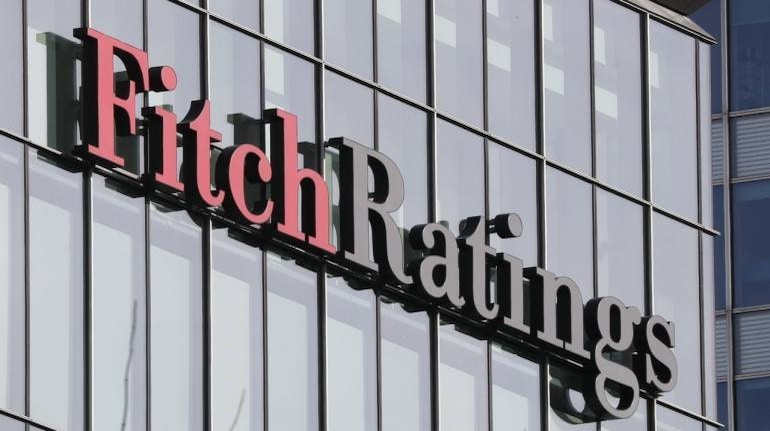Fitch affirms ratings of 7 Indian PSU banks at ‘BBB-‘. Analysis of investor impact provided.
Source and citation: “Fitch Affirms Ratings of SBI, Canara and Five Other PSU Banks at ‘BBB-‘.” The Economic Times, 17 Apr. 2024, ET Bureau.
TLDR:
- Fitch affirms ratings of 7 Indian public sector banks (PSBs) at ‘BBB-‘
- Stable outlook maintained for these banks
- Banks include SBI, Canara Bank, Bank of Baroda New Zealand, Union Bank of India, PNB, Bank of India, and Bank of India New Zealand
- Viability rating affirmed at ‘BB’ and government support rating at ‘BBB-‘
- Key factors: government support, strong operating environment, dominant presence, and strong profitability

Analysis for a layman:
Global credit rating agency Fitch Ratings has affirmed the long-term issuer default ratings (IDRs) of seven Indian public sector banks (PSBs) at ‘BBB-‘, which is the lowest investment-grade rating. This rating indicates that these banks have adequate capacity to meet their financial commitments, but adverse economic conditions could impact their creditworthiness. The banks that received this affirmation include State Bank of India (SBI), Canara Bank, Bank of Baroda New Zealand, Union Bank of India, Punjab National Bank (PNB), Bank of India, and Bank of India New Zealand.
Fitch has also maintained a stable outlook for these banks, suggesting that their ratings are unlikely to change in the near future. The agency cited factors such as government support, strong operating environment, dominant market presence, double-digit loan growth, lower impaired loan ratio, strong profitability, and dominance of deposits as key drivers behind the ratings.
Impact on Retail Investors:
- The affirmation of ratings and stable outlook may boost investor confidence in these PSBs
- Retail investors holding shares of these banks may see a positive impact on their portfolio value
- Investors should monitor the banks’ financial performance and asset quality to make informed decisions
- Diversifying investments across various sectors and asset classes remains crucial for managing risk
- Investors should be cautious of potential risks, such as economic downturns or policy changes that may affect the banking sector
Impact on Industries:
- The banking sector may experience increased investor interest and capital inflows due to the affirmed ratings
- Industries dependent on bank financing, such as infrastructure, real estate, and manufacturing, may benefit from the stable outlook
- Improved credit ratings may enable these banks to raise funds at more favorable rates, potentially leading to increased lending activity
- The overall economy may benefit from a well-functioning and stable banking system, supporting growth across various sectors
- Companies with strong relationships with these PSBs may find it easier to access credit and financial services
Long Term Benefits & Negatives:
Benefits:
- Affirmed ratings and stable outlook may help these PSBs attract long-term investments and partnerships
- Improved access to capital may enable these banks to support long-term infrastructure and development projects
- Stable banking system can contribute to overall economic growth and financial stability in the long run
Negatives:
- Over-reliance on government support may lead to moral hazard and reduce the banks’ incentive to improve efficiency
- Concentration of lending to certain sectors or large borrowers may increase the banks’ exposure to systemic risks
- Potential changes in government policies or economic conditions may impact the banks’ long-term performance
Short Term Benefits & Negatives:
Benefits:
- The affirmed ratings may provide a short-term boost to investor sentiment and stock prices of these PSBs
- Banks may be able to attract more deposits and raise short-term funds at competitive rates
- Improved market perception may help these banks expand their customer base and market share
Negatives:
- Any adverse developments in the global or domestic economy may put pressure on the banks’ short-term performance
- Intense competition from private sector banks and fintech companies may challenge the PSBs’ market position
- Potential asset quality deterioration or rising non-performing assets may impact the banks’ short-term profitability
Companies Potentially Affected by Fitch Ratings Affirmation for PSU Banks
Indian Companies Likely to Gain:
- Public Sector Banks (PSBs) mentioned in the article: The affirmed ratings (BBB- with stable outlook) by Fitch are positive for State Bank of India (SBI), Canara Bank, Bank of Baroda New Zealand, Union Bank of India, Punjab National Bank, Bank of India and Bank of India New Zealand. This could:
- Improve their access to capital at potentially lower interest rates.
- Enhance investor confidence in their financial stability.
Positive Impact on Market Sentiment:
The rating affirmation by Fitch is likely positive for the mentioned PSBs’ share prices. Investors may view them as less risky and more attractive investments.
Indian Companies Not Likely to Lose:
- The news is positive for the specific PSBs mentioned.
Global Companies Not Likely Affected:
- The news focuses on the credit ratings of Indian PSBs.
Global Companies That May Gain (Indirectly):
- Global Financial Institutions: If the improved creditworthiness of PSBs leads to increased investment in Indian financial markets, it could benefit global financial institutions with exposure to India.
Overall Market Sentiment:
The news is positive for the mentioned PSBs and could improve overall sentiment towards the Indian banking sector. However, it’s important to note that the rating is still BBB-, which is considered investment grade but with some credit risk.